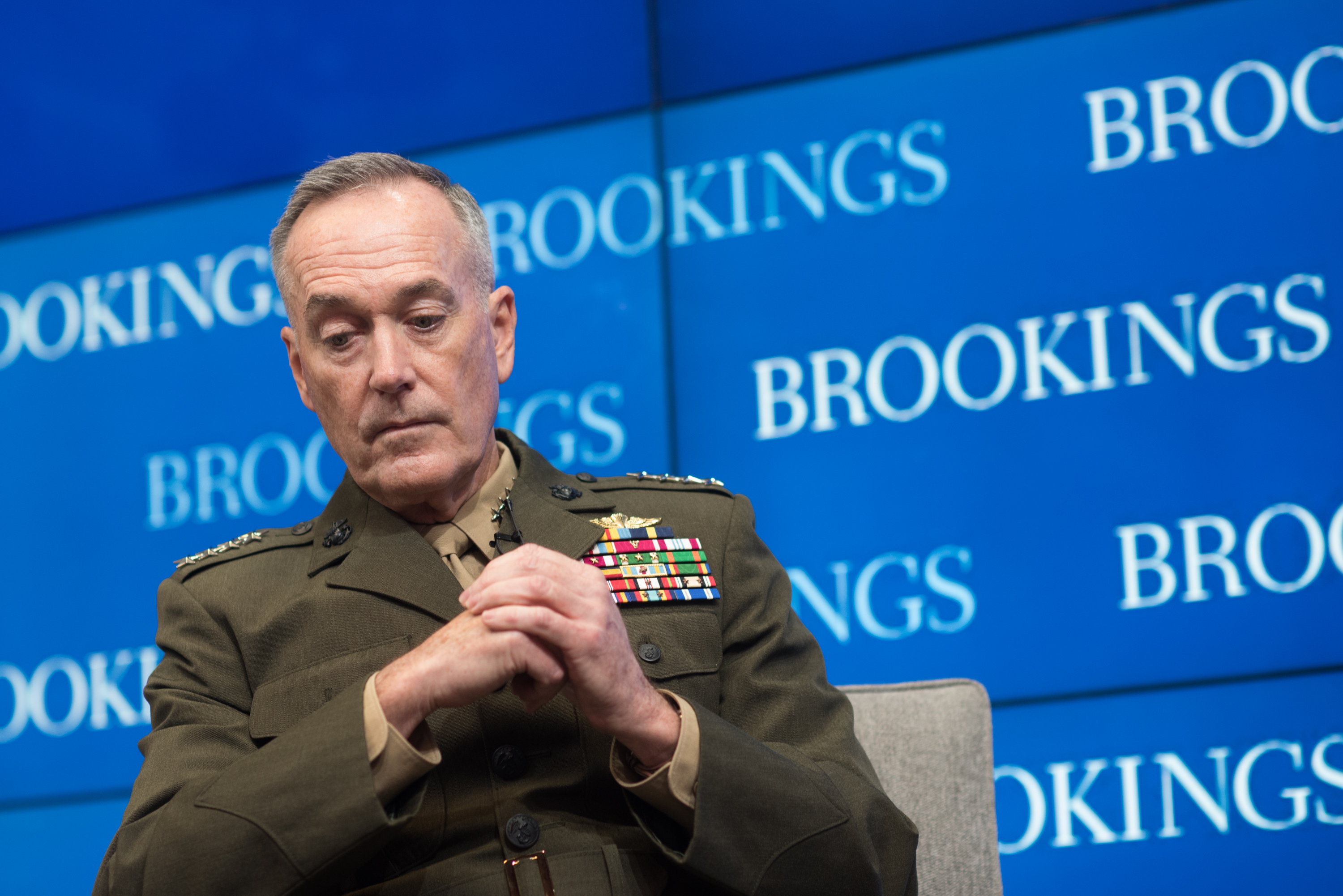
The chairman of the Joint Chiefs of Staff said in developing the latest plan to defeat the Islamic State needs to avoid options, “that would solve one problem only to create another.”
The goal is to, “clearly outline for [President Trump] the consequences, the opportunity, the risk associated with each one of the options that we presented,” said Marine Gen. Joseph Dunford, speaking at the Brookings Institution in Washington Thursday.
The plan is to layout for the president a strategy involving and from the Defense Department, State, Treasury and the intelligence community.
“Anything we do on the ground has to be in the context of the political objectives or we will not be successful,” especially in peace talks for Syria in Geneva, he said.
The idea is setting a common baseline for discussion among the different American departments and agencies about the Islamic State, al Qaeda and other terrorist groups.
He stopped short several times in answering questions about whether the United States and coalition partners will be sending more forces to Syria and Iraq and how long they might stay. “No decisions have been made yet.”
Dunford did acknowledge that “Iraq has begun to talk” about a continuing U.S. presence larger than the one that remained attached to the embassy.
In answer to another question related to the Islamic State campaign, he added, “at the end of the day we can’t be paralyzed by tough choices.”
Syria is an “incredibly complex environment” when looking at a strategy there to defeat the Islamic State and other terrorist groups. “We will talk about the impact on our Turkish ally,” the Kurds, the presence of Russia and Iran on the battlefield.
On Tehran changing its behavior, after being “put on notice” by then National Security Advisor Michael Flynn for testing a ballistic missile, Dunford said, “I haven’t detected a change in Iran’s behavior in the last month.” He said it continued to “export malign influence” throughout the region.
As to why he used the term “violent extremism” rather than some other, he said radical Islamists “is one element of it.” There is a Sunni brand, such as al Qaeda; a Shia brand, such as Hezbollah. “I was using the term violent extremism for all those groups … that take up arms to advance political or religious objectives.”
Dunford said members of the administration “have all reaffirmed our commitment to NATO,” but equally important is reminding members to honor their commitment to spend two percent of their gross domestic product on their own security. “NATO continues to transform” to remain relevant in an age of terrorism as well as threats from Russia.
He described relations with Russia as a work in progress. While “there’s a law in place preventing military-to-military cooperation” between the Kremlin and Washington, Dunford said he and his Russian counterpart talked recently “to make sure we mitigate the risk of miscommunication” that could create an international incident.
These kinds of talks at different levels include operations in Syria to de-conflict airspace and ground operations and also “safe conduct” of naval vessels and aircraft.
On China, Dunford, “We do respect sovereignty in the region, and that is access to the global commons, that is the airspace and see it is available to all.” He added, “We demonstrate that routinely to maintain the sanctity of that framework which has served us so well over seven decades” in promoting trade and peace.
As with Russia, “I want to do as a military leader all I can do to mitigate the risk calculations of tactical actions [having]an adverse strategic consequence” for the United States and China.
Dunford noted that the United States, India and China all participated in the Cobra Gold Exercise in Thailand. One part of that exercise involved delivering humanitarian assistance after a disaster.





